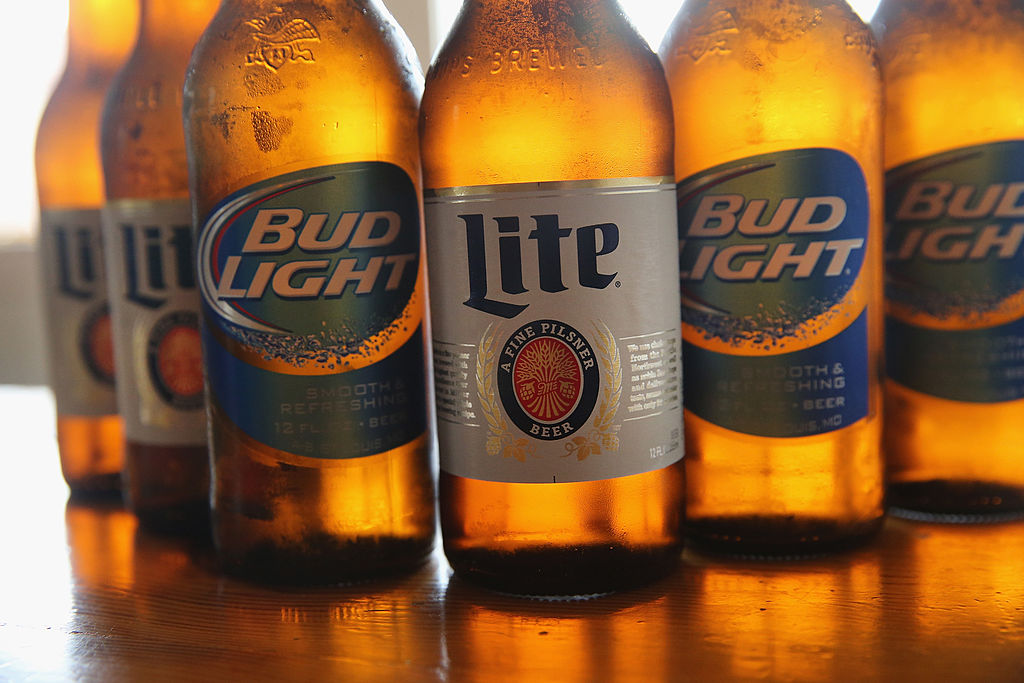Analysts at JPMorgan had some bad news for Anheuser-Busch’s management and stockholders, according to a report from MarketWatch Tuesday.
Jared Dinges of JPMorgan said they expected to see earnings before interest and tax to drop by a little more than a quarter this year.
That number, 26%, was in line with NielsenIQ data cited by the outlet, which put early May’s sales of Bud Light down 23.6%.
And some of those numbers may never recover.
“We believe there is a subset of American consumers who will not drink a Bud Light for the foreseeable future,” the analysts told MarketWatch.
However, they also said that there is some home home for Anheuser-Busch InBev stock, which has been priced assuming an even larger drop in EBIT — meaning that the stock could be bargain-priced right now.
Recently, Bud Light has offered a big rebate on a case of beer, an offer that essentially makes the beer free to many customers.
Just ahead of one of the biggest beer-selling holidays of the year, Bud Light debuted the offer $15-per-case rebate here.
The offer is shocking because in some cases it not only makes the beer free, it offers cash back from the purchase as the boycotts continue.
For instance, in many Target stores right now, a 15-pack case of Bud Light is only going for $12.99. Meanwhile, at rival Walmart, a 24-pack is going for $18.98.
Bud Light, in other words, is practically paying people to buy its beer as it tries to get past its Dylan Mulvaney fiasco.
The above prices are also those on the retailers’ websites, so in-store prices may even be lower as individual stores desperately try to unload their inventory.
Regardless of the particulars, this Bud Light rebate offer shows that the beer maker is desperate to get Bud Light into people’s refrigerators ahead of the Memorial Day weekend, both in hopes of enticing drinkers back to the brand and also so as to not take back millions of cans of expired beer that never sold.
Bud Light had previously offered to buy back expired product from distributors unable to sell the beer.
In addition, Bud Light offered the same rebate for Budweiser, Budweiser Select and several other Anheuser-Busch InBev beers in most states.
It’s all of a piece with the continuing downward spiral for what is supposed to be America’s biggest-selling beer brand.
From its first ill-fated partnership with Mulvaney at the beginning of March to the latest week of disastrous beer sales numbers, Bud Light has been struggling to get out from under this growing boycott.
As more people find a sudden distaste for Bud Light, sales have been collapsing. The plunging sales have also affected some of Anheuser-Busch InBev’s other brands, too.
The crashing sales have gotten so bad that some local distributors launched their own ad campaigns to plead with customers to resume buying the beer.
At this point, nearly everyone is mad at Bud Light. Conservatives are mad that the beer is promulgating the radical gay and transgender agendas, and leftists are mad that Bud Light wasn’t vocal enough in supporting them in the face of the Mulvaney outrage.
So far, Bud Light has not found a suitable path forward as the boycott continues to send the brand into a tailspin, and not only in sales and revenue numbers.
This article appeared originally on The Western Journal.

























 Continue with Google
Continue with Google